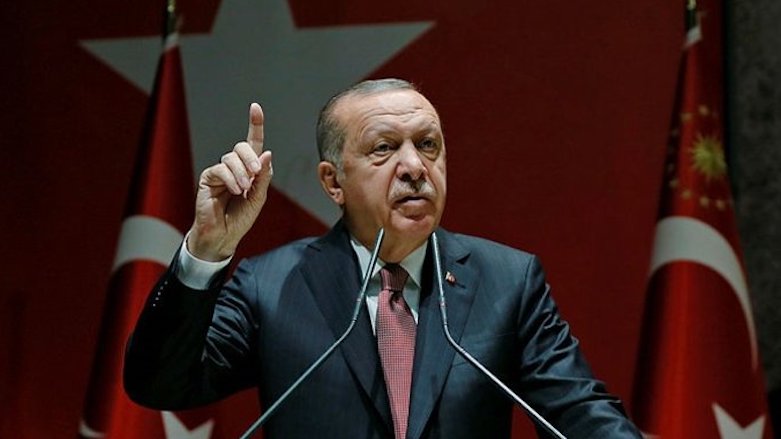Wash Post likens Erdogan to Putin; calls on Biden to draw ‘red lines’

WASHINGTON DC (Kurdistan 24) - The Washington Post is one of America’s three most important newspapers. On Sunday, it published a highly unusual editorial on the eve of US President Joe Biden’s meetings on Monday with Turkish President Recep Tayyip Erdogan in Brussels and then on Wednesday with Russian President Vladimir Putin in Geneva.
The newspaper lambasted the Turkish and Russian leaders, calling on Biden to take a tough stance against both figures in his meetings with them.
That Putin would be described, as the Post did, as America’s “most boldly aggressive US adversary” is a common enough view in Washington. It is the paper’s comments on Erdogan that stand out, as it described him only as a “nominal US ally.”
“Biden’s most important task,” the editors wrote, “will be to redraw red lines with two rulers who have worked against the United States in a host of ways.”
The Post’s editorial then proceeded to list the ways that Erdogan and Putin have acted against US interests.
“Erdogan has warred with US-supported Kurdish forces in Syria,” is the first item in that list, which continued, noting that Erdogan had “backed Azerbaijan’s recent offensive against Armenia,” while “he has refused to give up his purchase of an advanced Russian anti-aircraft system even after that stance led to the cancellation of U.S. F-35 deliveries.” And, in addition, there is Erdogan’s “unrelenting repression of domestic dissent.”
Erdogan Contravenes NATO’s Fundamental Purpose
NATO was established 74 years ago—outside the memory of most of those living today, so a brief review of its history may well be helpful.
NATO’s fundamental purpose, when founded (and, arguably, remains), was to counter Russia—then the Soviet Union. For most of US history, isolationism dominated this country’s national security policy. Protected by two oceans, the US focused on the Western hemisphere, and its horizons did not extend much further.
That changed with World War I, when President Woodrow Wilson led the US into that war on the side of Britain and France, against Germany. However, once that war ended, US isolationism returned with a vengeance.
It was World War II that led to an enduring US move away from isolationism—and, in fact, to its opposite: leader of the free world. In early 1941, Britain was the sole power resisting Adolf Hitler. Hitler’s attack on the Soviet Union in June, brought Russian leader Josef Stalin to Britain’s side, while Japan, then allied with Germany, made a similar blunder in the Pacific, bringing the US into the war with its assault on Pearl Harbor in December.
Four years later, the Nazis were defeated. But that created a power vacuum in Europe, which Stalin exploited, imposing Moscow’s rule.
In 1946, US President Harry Truman, invited Winston Churchill, Britain’s great war-time leader, who then lost the post-war elections, to speak at a college in Truman’s home state.
There, in Foulton, Missouri, sharing the stage with Truman, Churchill spoke with unparalleled eloquence, warning of an “Iron Curtain” descending on Europe, which was being imposed by Moscow.
Churchill’s speech, which still resonates today, made a great impression on Americans. NATO was established the following year. The US would not again revert to isolationism, as it had after World War I.
Among NATO’s founding members was Turkey. Thus, it is of particular significance that the editors of Post would liken Erdogan to Putin.
Erdogan is acting in contravention of NATO’s fundamental aim and founding purpose!
“What is striking about the Washington Post editorial is that it presents Erdogan alongside Putin as an autocrat that Biden needs to deter,” Dr. Aykan Erdemir, a former Turkish parliamentarian and now Senior Director of the Turkey Program at the Foundation for Defense of Democracies, told Kurdistan 24.
“The editorial board not only called Turkey a ‘nominal US ally and NATO member,’ but also urged Biden to deny Erdogan a ‘waiver from existing sanctions without changes in his policies,’” Erdemir continued.
“This unprecedented language concerning a NATO member shows how much Turkey’s image and standing have suffered, as Erdogan continues to drift away from the transatlantic alliance and values,” Erdemir concluded.
Editing by John J. Catherine
